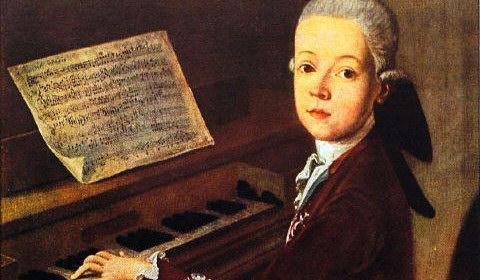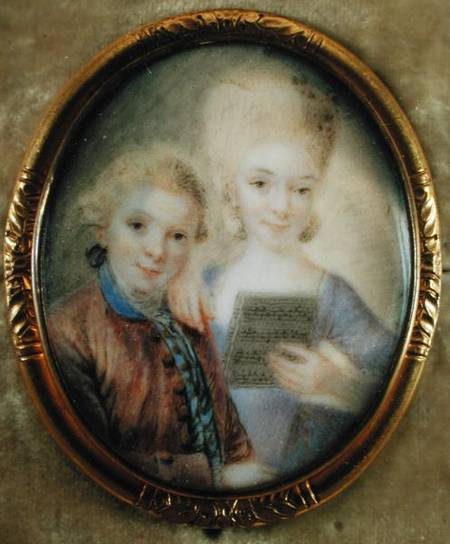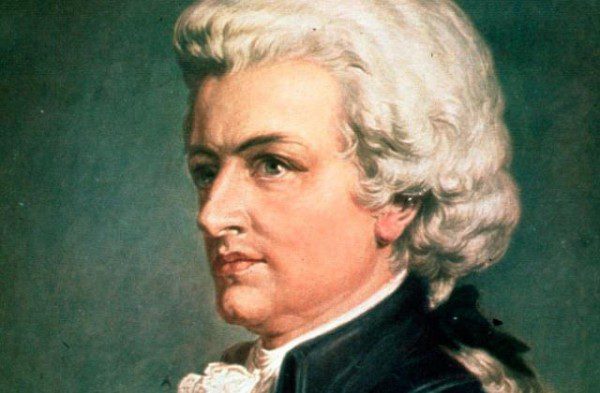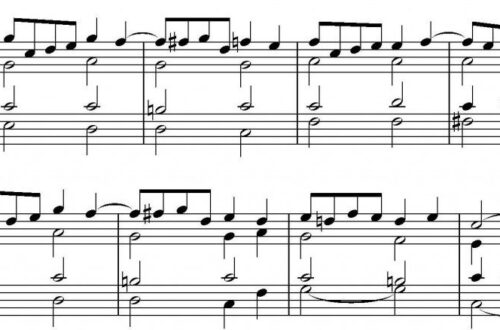
Mozart’s childhood: how a genius was formed
To better understand what influenced the personality of Wolfgang Amadeus, you need to find out how his childhood went. After all, it is a tender age that determines what a person will become, and this, in turn, is reflected in creativity.

Leopold – evil genius or guardian angel
It is difficult to exaggerate the role that the personality of his father, Leopold Mozart, had on the formation of the little genius.
Time forces scientists to reconsider their views on historical figures. Thus, Leopold was initially viewed almost as a saint, having completely abandoned his own life in favor of his son. Then he began to be seen in a purely negative light:
But most likely, Leopold Mozart was not the embodiment of any of these extremes. Of course, he had his shortcomings – for example, a hot temper. But he also had advantages. Leopold had a very wide sphere of interests, from philosophy to politics. This made it possible to raise my son as an individual, and not as a simple artisan. His efficiency and organization also passed on to his son.
Leopold himself was a pretty good composer and an outstanding teacher. Thus, he wrote a guide to learning to play the violin – “The Experience of a Solid Violin School” (1756), from which today’s specialists will learn about how children were taught music in the past.
Giving a lot of effort to his children, he also “gave his best” in everything he did. His conscience obliged him to do this.
It was my father who inspired and showed by his own example that. It is a big mistake to assume that the innate genius witnessed by many respected contemporaries did not require any effort from Mozart.

Detstvo
What allowed Wolfgang to freely grow in his gift? This is, first of all, a morally healthy environment in the family, created by the efforts of both parents. Leopold and Anna had true respect for each other. The mother, knowing her husband’s shortcomings, covered them with her love.
He also loved his sister, spending hours watching her practice at the clavier. His poem, written for Marianne on her birthday, has survived.
Of the seven children of the Mozart couple, only two survived, so the family was small. Perhaps this is what allowed Leopold, overloaded with official duties, to fully engage in developing the talents of his offspring.
Elder sister
Nannerl, whose real name was Maria Anna, although she often fades into the background next to her brother, was also an extraordinary person. She was not inferior to the best performers of her time, while still a girl. It was her many hours of music lessons under the guidance of her father that aroused little Wolfgang’s interest in music.
At first it was believed that children were equally gifted. But time passed, Marianne did not write a single essay, and Wolfgang had already begun to be published. Then the father decided that a musical career was not for his daughter and married her off. After marriage, her path diverged from Wolfgang.
Mozart loved and respected his sister very much, promising her a career as a music teacher and good earnings. After the death of her husband, she did this, returning to Salzburg. In general, Nannerl’s life turned out well, although it was not cloudless. It was thanks to her letters that researchers received numerous materials about the life of the great brother.

Travels
Mozart the Younger became known as a genius thanks to concerts that took place in noble houses, even at the courts of various royal dynasties. But we should not forget what travel meant at that time. Shaking for days in a cold carriage to earn bread is a difficult ordeal. Modern man, pampered by civilization, would hardly be able to withstand even a month of such a life, but little Wolfgang lived like this for almost a whole decade. This lifestyle often provoked illness in children, but the travel continued.
Such an attitude today may even seem cruel, but the father of the family pursued a good goal: After all, then musicians were not free creators, they wrote what they were ordered, and each work had to correspond to the strict framework of musical forms.
Hard way
Even very gifted people must try to maintain and develop the abilities given to them. This also applied to Wolfgang Mozart. It was his family, especially his father, who instilled in him a reverent attitude towards his work. And the fact that the listener does not notice the work put in by the composer makes his legacy even more valuable.
We recommend: What operas did Mozart write?
Mozart – Film 2008





